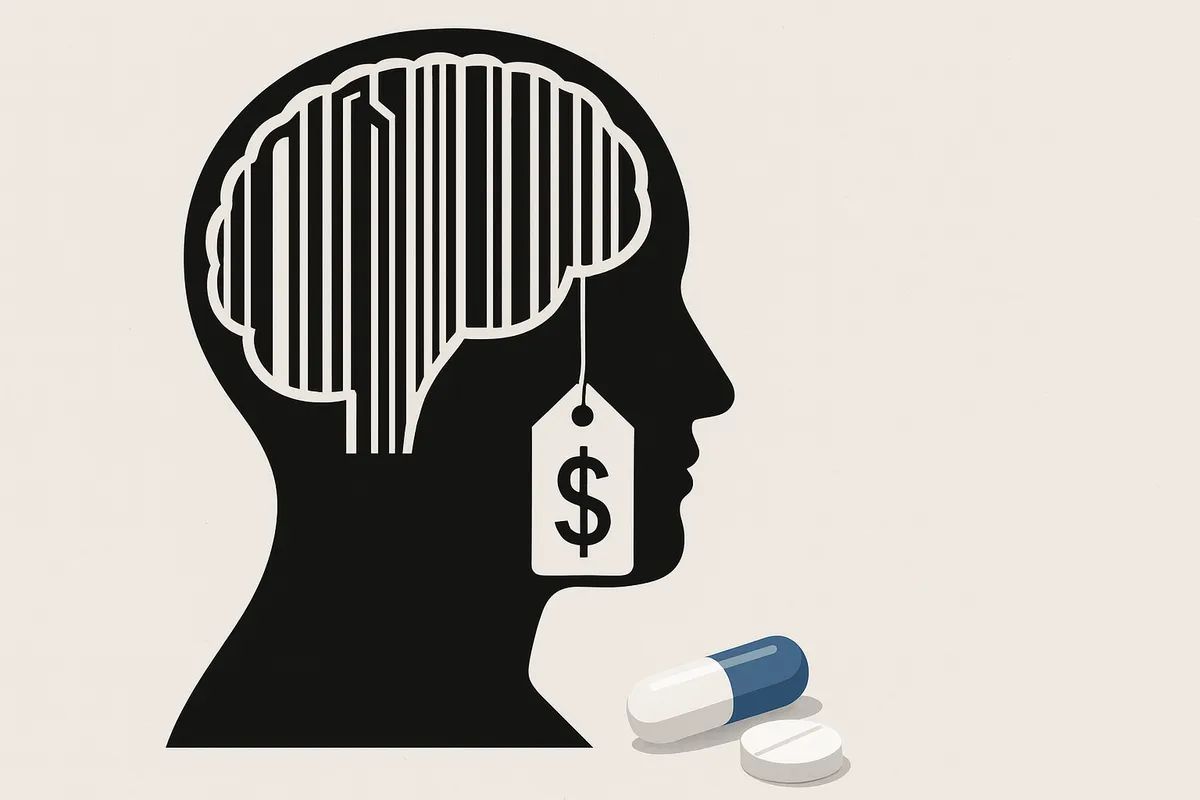Autism as Opportunity? What the Pharma Forecast Doesn’t Say
 On July 23, 2025, a news release by ResearchAndMarkets.com announced a booming market: autism therapeutics, which are expected to grow from $4.41 billion in 2023 to $11.29 billion by 2034. Pharma giants like Roche and Johnson & Johnson are investing heavily. Dozens of clinical trials are underway. The phrase "rising demand" was repeated like a promise.
On July 23, 2025, a news release by ResearchAndMarkets.com announced a booming market: autism therapeutics, which are expected to grow from $4.41 billion in 2023 to $11.29 billion by 2034. Pharma giants like Roche and Johnson & Johnson are investing heavily. Dozens of clinical trials are underway. The phrase "rising demand" was repeated like a promise.
But demand for what?
Not inclusion. Not access. Not support on our terms.
The "demand" is for interventions that make autistic people less disruptive, less visible, more tolerable to a system that still doesn’t know how to listen. The treatments being marketed aren't about alleviating distress as defined by autistic people themselves. They're about managing the behaviors that others find inconvenient.
Let’s be clear: this isn’t research into co-occurring seizures, gastrointestinal pain, or trauma. It’s a market forecast for drugs to reduce irritability, flatten stimming, increase compliance. In other words: to "normalize" us.
Yes, every healthcare field has market analysis. Cancer, depression, diabetes — they all have reports like this. But autism is different. Here, the "treatment" often targets identity, not illness. The behaviors we’re medicated for are often adaptive responses to a world that won’t accommodate us.
This market only grows if autism remains framed as pathology. Not as difference. Not as a neurotype. As a disorder in need of correction.
That’s not care. That’s the commodification of our identities — turned into symptoms so someone else can sell "the cure."
And unlike other conditions, the autistic person is rarely the customer. The drugs are tested on us, prescribed for us, and paid for by others. Parents. Schools. Institutions. The person taking the pill may never have been asked what they want, what they feel, or whether the world could change instead of their brain chemistry.
This is how profit thrives on erasure.
Define difference as disruption, and you create a billion-dollar incentive to suppress it.
We’re not saying autistic people don’t experience suffering. Many of us do. But the answer to our suffering isn’t always a chemical. Sometimes it’s a changed classroom. A different sensory environment. A world that stops demanding our disappearance.
To be clear, many autistic people do seek and benefit from medication — especially for co-occurring conditions like anxiety, sleep disturbances, or epilepsy. The issue isn’t the existence of therapeutics, but the assumption that our behaviors must be fixed without our input. There’s a world of difference between treating distress and suppressing difference. What’s missing from this forecast is any indication that the people most affected are being heard.
So when you read a forecast about autism therapeutics, ask yourself:
- Whose behavior is being adjusted?
- Whose comfort is being prioritized?
- Whose future is being sold?
The press release doesn’t say.
But we will.